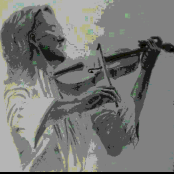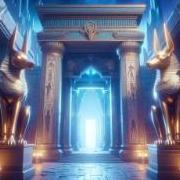Leaderboard
Popular Content
Showing content with the highest reputation on 03/27/2021 in all areas
-
1 point
-
A march for flute and cello. Im working on a bigger project at the moment but thought I'd compose something else today.1 point
-
Short answer: The main thing it takes away is time. The most valuable, non-renewable resource in the universe. It's given back the artistic satisfaction of creating the music I want to hear and realizing a vision I have, provided enjoyment to thousands of people around the world, and sometimes even money. The much longer answer: I increasingly feel that technology has significantly taxed people for time when it comes to composing. When I started, I just had my guitar and piano, and a pencil and paper. At some point in the mid 2000s, I discovered Guitar Pro 4, or maybe it was 3 at the time? That changed my world. The fact that I could play back my songs with (crappy) MIDI was just mind-blowing. Even though they'd actually existed since the 90s, I had no idea that home-recording was possible and certainly not MIDI sequencers and virtual instrument samplers. I firmly believe that this had two benefits: 1. is that it made me a much better composer than a lot of my peers at the time wound up becoming. I could not rely on any technological crutches; I had to make sure that on just my guitar, or with the GP playback that it sounded like a great composition there. But the other big benefit it had was how little time investment it required. Back when, I'd write the song (in just a few hours), it was was totally awesome, and I would just say "this will sound great when I can get my band together and go to a recording studio some day!" and then moved on with life. However, it's extremely expensive to hire nothing but live players, and I don't have a band anymore most of the time, so I have to do virtual instrument mockups, mix everything myself, and this can take a loooong time if you want to make something great. Looking at my project files for my most recent tune, which I did straight into the DAW since the electric guitar would be the only live instrument, I started it on the 2nd of March and finished it on the 21st. I worked on it every day until it was done. So for a 3 and 1/2 minute piece, which I'm really pleased with btw, it took almost an entire month. A song I wrote using almost all live performances, and started in Guitar Pro, back in October called "Open Road Runaways", I wrote that in a single day, and had it done three days later and the only reason it wasn't done in 1 or 2 days, was because I had to wait for the other musician to get around to recording his parts. That is an absolutely staggering difference in time investment. Maybe I shouldn't admit this for professional reasons, but I am increasingly less interested in just "composing" and thinking more about getting back into playing in live bands. At this point, the only thing that appeals to me about writing CUSTOM music for games or stuff anymore would be if they were offering good money. Otherwise, I can just create at my own pace, and license out tracks to developers here and there; it's a whole lot less stressful and time consuming. But Here's another thing about all these pieces of music I've composed, including the most recent one, which ties into my previous point: I don't recall about 90% of the process of creating it. On the first game score I ever composed, 10 years ago, I honestly don't remember anything about the time I spent composing it... But I do remember jamming with my friends, rocking out on stage, the people I met, the festivals I went to, etc. On my death bed, I am not going remember all the fun I had writing music; most of what I'll remember would be the times spent playing it and the friends I made on the "journey" as it were. With a band, I could take songs I/we write and play them live for a lot of different people, a lot of stories and life experiences could be had. Not so much with just writing music, though. So something else it can take out of you? Life experiences. I know this all probably sounds really negative, but it's not meant to be, but what it has taught me I think is not to focus TOO MUCH on composing — there is more to music and life in general.1 point
-
Full of ideas - there are certainly some impressive sounds in this! You've made some very intriguing and engaging passages in your piano figurations and orchestrations. The only thing I miss is a sense of thematic unity - your melodic ideas sound sometimes as if they are flowing out of your mind kinda in a haphazard and random way. It takes a while to get going to that point but you do introduce some long song-like melodies in this that are passed between the orchestra and piano. I wish you had posted a score but I guess I wouldn't either for an unfinished piece! I do hope you finish it in the future as I like the energy and many contrasting sections! The soft respite around the 7 minute mark is pretty cool - it's unexpected given all the energy in the rest of the piece. Nice job!1 point
-
I used to compose this way which I think is a certain type of creative mania but that was a long time ago (before I started composing on paper when I would spend long hours at the sequencer which today I find too intimidating for some reason - maybe I've grown out of it?) I think the people who participate on this website probably do so because they find the process of composition and sharing it with others enjoyable - something that I personally would feel like I'd be putting in jeopardy if I did it for the pursuit of material rewards. At the same time I feel like I would really enjoy writing music for some kind of extra-musical purpose such as a role-playing game or film. But I don't think I would be able to forgive myself if I didn't deliver the kind of music that the context demanded/required and I've heard of some composers really stressing themselves out over this to the point of getting stomach ulcers so I guess it's a double-edged sword. What I enjoy the most is the process of composition itself when I finally get to the point where I feel like I've made some musical decisions and know what I'm doing. I just really love getting into it. Being in the zone where I feel like I am doing everything right and the piece is basically writing itself. I also like writing my music on paper - I feel like that's a really meditative and organized way for me to put my ideas together. There was a time when I didn't have access to a computer for a while and I felt like I wanted to compose music so I started to write on paper and haven't gone back since. I don't know why but when I sit down in front of a computer and attempt to compose into the sequencer I start to feel like I don't really have any worthwhile ideas and come up empty creatively. My satisfaction in the end is in having created something that I (and hopefully others as well) can enjoy listening to and will enjoy sharing with them here. I think if I wrote something on paper that turned out sounding completely wrong once I put it into the computer I would get the opposite effect and that satisfaction would not be there - in such a case I might try changing what I wrote (as I did a little bit with my "Stalagtite Cave" piece) or try to figure out what I did wrong and apply it to future pieces so that I get my music to sound the way I want it to.1 point
-
Thank for all the comments and suggestions @Luis Hernández! I agree with most of what you wrote. I composed this around a year ago when I knew much less than I do now (it is not like I currently know a lot either) so I did not think too much about what modes entailed or implied, rather, I just though of them as a set of notes which defined a "different gravity tension space" to the tonic. In other words, I saw them just as a set of scales, but scales which had to be used in a context in which the compositional efforts were aimed at maintaining the root note of the scale as the tonic (which is quite hard for some of the modes, specially locrian, that is why I avoided it). That is the main reason why I used some C7 here and there, and, at some point, even altered one note for that (in Lydian), only because, due to my inexperience, I was not able to keep F as the tonic, so I added the C7 to keep the ear focused on the F as a tonic. In general, back then, I did not know much of tonal harmony either, so I mostly composed this by ear with the modes as a "scale framework". So, in general, I agree with all your suggestions and I will surely go back to studying modal music and compose something new (I might even try to modify this old piece) when I have the time for it. However, I disagree with the following two statements: I do not think that the fact that most modal melodies in Dorian use the natural sixth in the melody should make the composer feel the lack of the natural sixth in the melody as an odd thing, nor that its use would necessarily makes the overall result nicer. This piece from "the legend of Zelda" is probably not the best example of modal composition (or maybe it is, I really do not know) but it just popped into my head as a dorian-based composition which does not include the sixth on the melody. It does, however, modulate from D dorian to D natural minor and it does also have a "strong harmonic movement", so it is not the type of modal music based on a drone or static harmony: https://www.youtube.com/watch?v=N3OZoErzJg0. But I do agree that tonal harmony based on a drone or with static harmony would benefit of having the characteristic tones in the melody, since they would be lacking in the harmony. I also disagree with the statement about the melody being fixed with the accidentals being the only thing changing for each mode. Except for the first four bars of each theme (always playing the fourth and the third degree of the mode) all the remaining bars of the themes are, melody-wise, strongly different from each other and they do have quite different melodic contourns. I composed each melody independently with only a conscious effort of making those first four bars (and the last bar) similar. In fact, the main Ionic melody includes the sixth degree twice, one of them in a strong first beat and lasting for half a measure. So, had I only added accidentals for adapting the same melody to each mode, the sixth would have being included twice in the Dorian mode theme as well (which, as we just talked about, it didn't). I totally agree with the comment about the harp. The fist thing I though when PaperComposer commented on this after a year was "oh... this must be so unplayable..." since back then I did not even know that harps had a complex pedal system for the accidentals (😅) and I did not think, even once, about the playability of the piece (now I would surely think about it). Of course, I am still glad to know that thanks to its tempo the piece might be playable. But I would surely take care of learning about compositing for the harp before I attempt another piece featuring it. Thank you so much for your suggestions! I will take them into consideration for modifying this piece and composing new modal pieces when I go back to learning modes!1 point
-
It is actually a good idea! And I would be more than willing to work as a team with people, not so much with the goal of getting help to finish my small musical projects, but rather as a way of collaborating with a team and learning from others. I am sure working in projects together is one of the best ways to learn how others approach music and musical composition.1 point
-
Nice work. I have some comments: I now that many people think that ionian mode is the same as major mode. And, in theory (as in practice), it isn't. To make a modal ionian sound the first thing is to avoid V-I progressions, particularly in the cadences. Apart from that, use I chord (F maj) and look for CADENTIAL chords, in modal harmony cadential chords include the characteristic note (which in ionian is the 4 = F here) and are if possible a tone or semitone away from the tonic. So your cadential chord here should be Gm, which has the 4th (Bb). Instead you use mostly the IV chord (Bb) what makes is sound plagal, and in the final cadence you use C7 - F. The mixolydian part is good but I would avoid the C in the bass, again because the movement C - F strongly reminds of major mode. The dorian variation includes the proper progressions of the mode. What is a bit odd it that the characteristic note (the sixth = D) doesn't appear in the melody but once, and shortly (measure 27). Although it is present in the arpeggiated harmony...., I don't now, one would expect to hear it in the melody (as in Scarborough Fair), Staying Alive, etc...) This happens because you took the melody and make it fixed, changing accidentals according the mode. In aeolian mode the cadential chord is lacking, which is Db for Fm aeolian. Phrygian is OK using bII. In lydian is OK to use Em and G as cadentials, but why you wrote another C7 in m. 59? (it sounds F maj). The melody is simple, so it is easy to adapt it to the different modes. As pointed above, it would be more interesting if the variations were made not only changing the accidentals, but making new melodies from the original material. As it happens to all of us, in the beginning, you see modal harmony as tonal harmon, it its "methods". We have to see modality as horizontal stuff: what matters is the melody and not the frequent changes in the chords. Real modal music (traditional) stay in the tonic chords for long, and changes are minimal. The writing of the harp..., I think it's possible to play it because the tempo is slow, and pedal changes are not complicated.1 point
-
LoL - sounds like you need a team of composers working with you. And if you did you wouldn't be the first composer posting in these forums who had created something with a team! There's a composer on here who has an orchestrator, a composition assistant etc. Actually now that I think about it - it might be a good idea to work in a team with other composers as long as everyone is given a fair chance to produce a piece of their own with the assistance of the team on some kind of rotation.1 point
-
@PaperComposer yes i play, even though i don't play anymore. tarrega is one of the most important names in the guitar repertoire. You can find pieces of all kinds of difficulty levels. some of his most famous piece; (I don't know if you know these) Gran vals (famous nokia ringtone), maria gavotte, recuerdos de la alhambra (This piece comes to mind first for the tremolo technique) capricho arabe, gran jota (In this you will see almost all the techniques in the guitar) but these are difficult, tarrega repertoire alone can be a reason to improve yourself on the guitar. the names I mentioned above help you develop.( sor, carulli, giuliani, carcassi etc)1 point

.thumb.png.8b5b433a341551e913a34392660bc95b.png)




